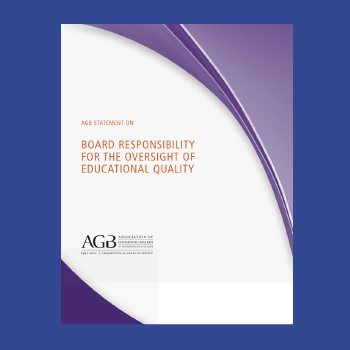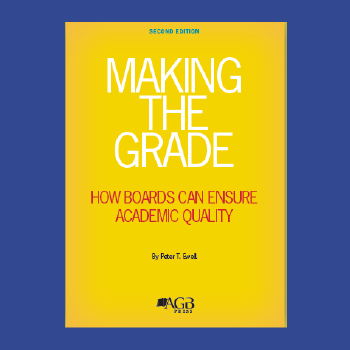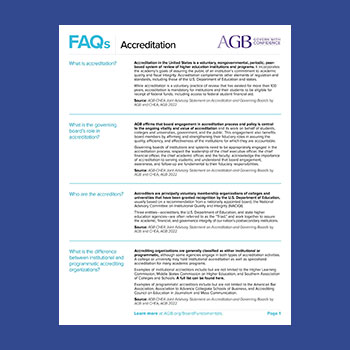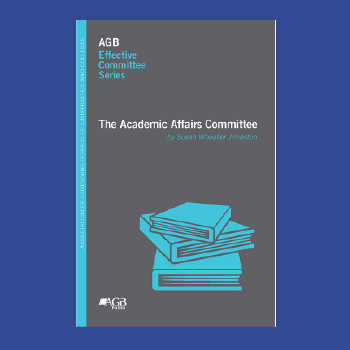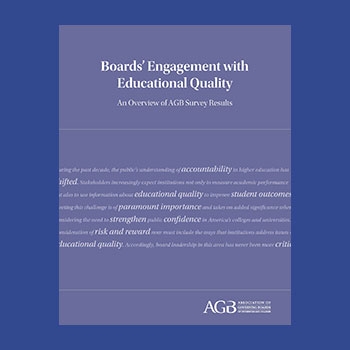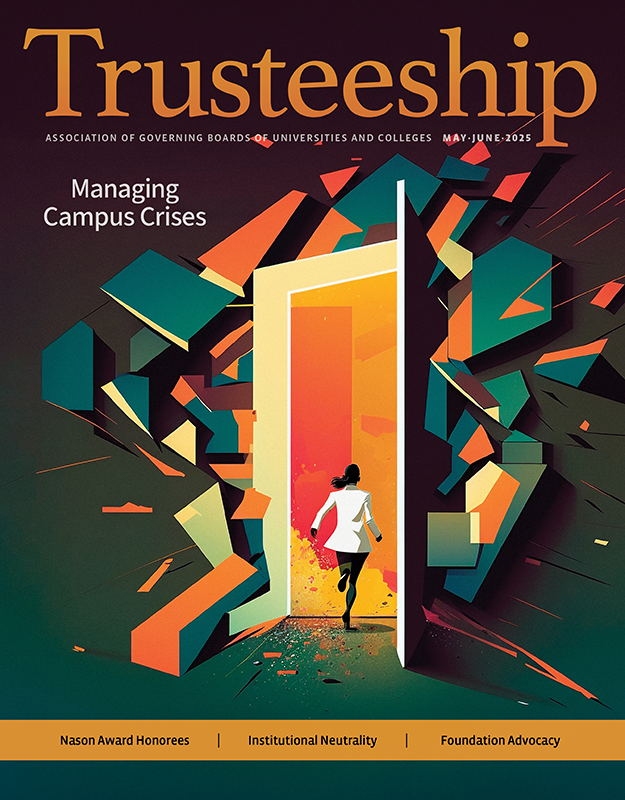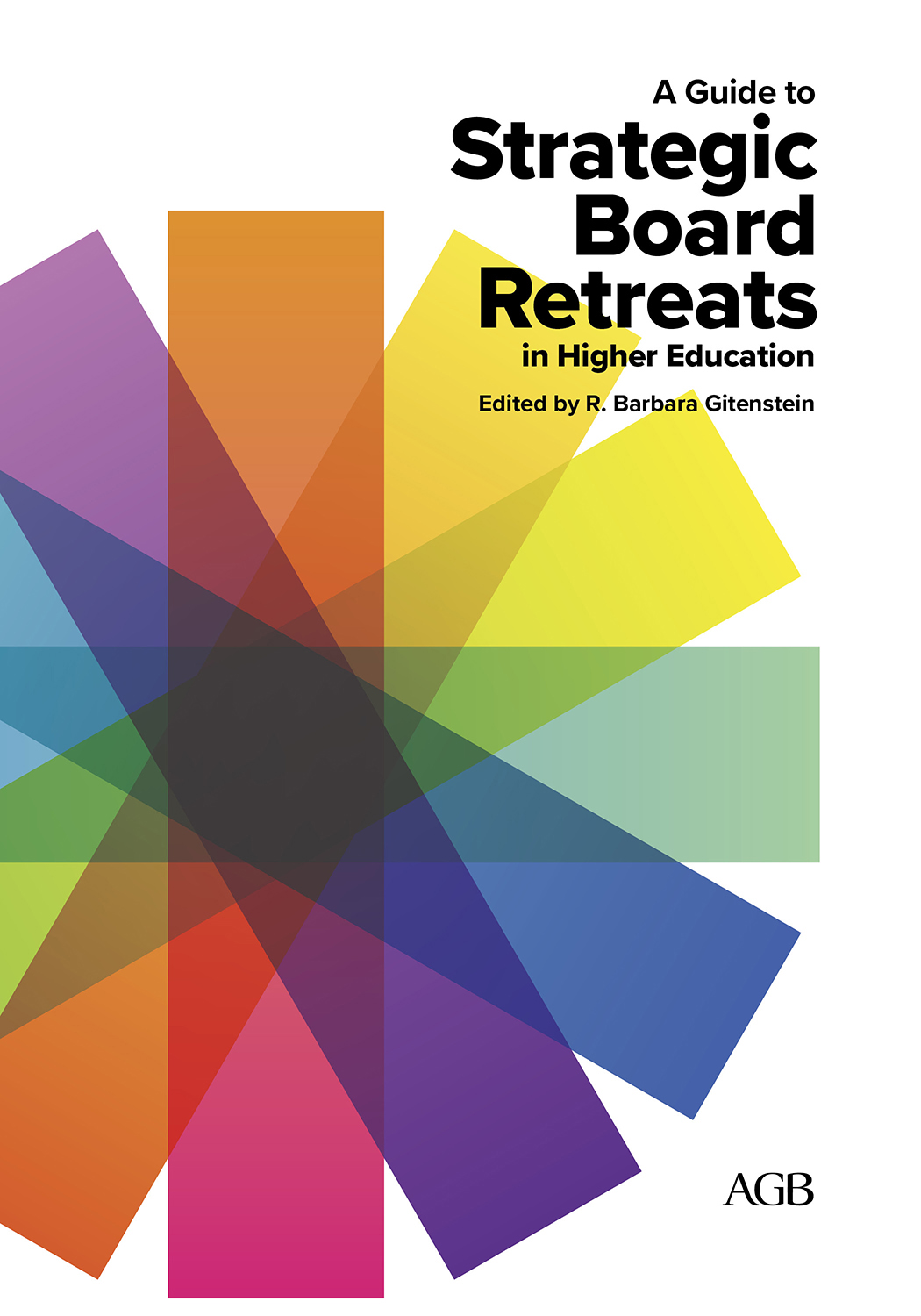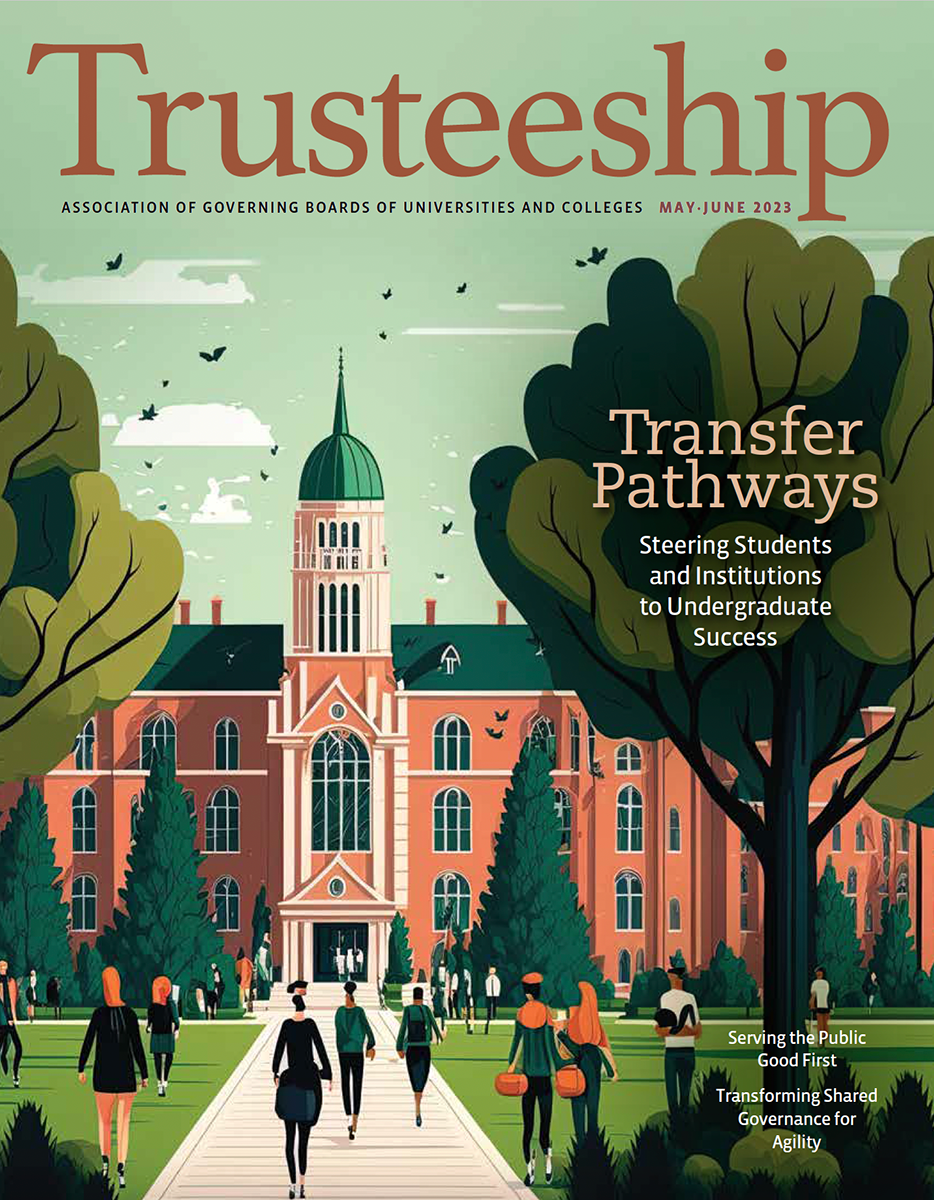Why this is important.
Governing boards should recognize that assuring educational quality is at the heart of demonstrating institutional success and that they are accountable for that assurance.
While academic administrators and faculty members are responsible for setting learning goals, developing and offering academic courses and programs, and assessing the quality of those courses and programs, boards cannot delegate away their governance responsibilities for educational quality.
AGB empowers trustees to make sure their board and its appropriate committees not only make understanding the elements of educational quality a central feature of their agendas, but also consistently ensure their institution’s programs and resources are focused on the total educational experience, not just traditional classroom activity.
Sources: Making the Grade: How Boards Can Ensure Academic Quality (2nd Edition) by Peter T. Ewell, AGB 2012
AGB Statement on Board Responsibility for the Oversight of Educational Quality , AGB 2011
Questions for boards.
Click below to reveal key questions for your board to consider:
Board and Institution Fundamentals
Consequential Questions:
- Is our board’s work aligned with our institution’s strategic vision, goals, and priorities? (fundamentals)
- What are our basic indicators of student progression and success? (fundamentals)
- Are our board meeting agendas concise and developed with clearly stated desired meeting outcomes? (fundamentals)
Sources:
Making the Grade: How Boards Can Ensure Academic Quality (2nd Edition) by Peter T. Ewell, AGB 2012
AGB Statement on Board Responsibility for the Oversight of Educational Quality , AGB 2011
Board Discussions
Consequential Questions:
- Is our board familiar with the various dimensions of academic quality? How apprised is our board of student learning assessments, student retention and graduation rates, stakeholder satisfaction, and academic-program reviews?
- Is our academic affairs committee well supported?
- Is our board aware of the impact of issues brought before other board committees that deal with academic affairs-related issues?
- Does our board translate our charges into annual goals and work plans that align with the board’s governance responsibilities and our institution’s strategic plan?
- What kinds of evidence does the institution collect about learning?
Sources:
Making the Grade: How Boards Can Ensure Academic Quality (2nd Edition) by Peter T. Ewell, AGB 2012
AGB Statement on Board Responsibility for the Oversight of Educational Quality , AGB 2011
Board Relationships
Consequential Questions:
- How is our board’s working relationship with our president and chief academic officers? How can we improve it?
- How can our board best use its authority to ensure quality without micromanaging the faculty and academic leaders?
Sources:
Making the Grade: How Boards Can Ensure Academic Quality (2nd Edition) by Peter T. Ewell, AGB 2012
AGB Statement on Board Responsibility for the Oversight of Educational Quality , AGB 2011
Recommended resources.
We carefully curated these staff-picked resources for you:
Making the Grade: How Boards Can Ensure Academic Quality
2012
Peter T. Ewell
Accreditation
FAQs
AGB
The Academic Affairs Committee
2014
Susan Whealler Johnston


